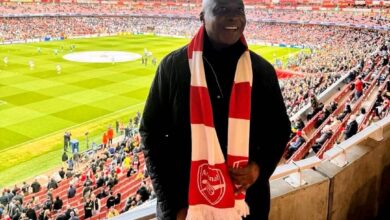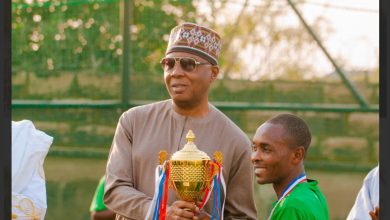NPFL: Badawiy rates Kwara Utd high
...says Conspiracy theory against team's continental ambition

The just concluded 2020/2021 NPFL season has been described as a huge success for Kwara United Football Club considering their show of surprises.
General Manager of the Club, Mallam Bashir Badawiy stated this yesterday while featuring on Midland FM Current Affairs Programmes, “the Beat”.
Bashir Badawiy described as outstanding the performance of the team which came as a surprise to many pundits, noting that the Management is currently engaging some players to join the team while some will leave.
Reacting to the Verdict of the Appeal Committee for awarding three points ,three goals to Rivers United, the General Manager said it a conspiracy theory against Kwara United and a bad precedence for football development in the Country.
He applauded Governor AbdulRahaman AbdulRazaq for attracting Investors to the state among others saying that the Club would look at the possibility of travelling by air to honour away ties next season, to reduce fatigue and other burdens.
He thanked fans, Supporters and lovers of the Club for their show of love and passion and urged them to continue in that direction in subsequent next seasons to guarantee more positive results.





